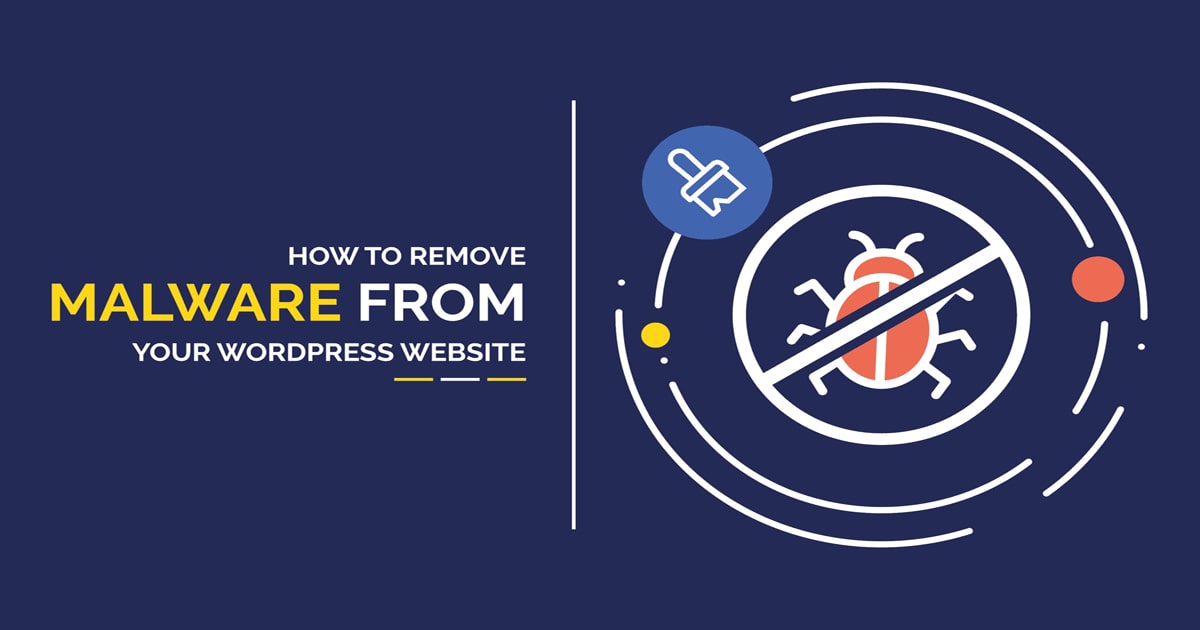WordPress as a platform is more secure than many others. However, there are always vulnerabilities in any service you use. The more popular a platform is, the more likely people are to try to break through its defenses.
When it comes to WordPress, malware is one of your biggest concerns as it can affect your website in many ways. If you don’t know how it works, it can also be difficult to secure your site. In this article, we will talk more about malware and WordPress security. We’ll also discuss some of the most common types of WordPress malware and how they can affect you.
Let’s go there!
An introduction to malware
Malware is a broad term that encompasses various types of malicious software. For example, viruses are a subset of malware noted for their infectivity and intent to spread to as many systems as possible. However, malware can also be malicious code used to infect a single system or application.
When it comes to websites, malware often tries to control some important functionality. For example, the most aggressive type of WordPress malware focuses on infecting the devices of those who visit a website. Others may simply replace some of your content or make minor changes that may go unnoticed unless you know about them.
3 Ways Malware Can Affect Your WordPress Site
Malware is always evolving, so it is difficult to talk about specific types of malicious code. Instead, we’ll focus on how malware most commonly affects your WordPress site and how you can protect it.
It hurts your search engine optimization (SEO)
Most of us spend a lot of time working on the SEO of our website. In some cases, malware can undo much of this effort by using your site to spam links to other domains.
This works by using malware that infects your website and replaces your outgoing links so they navigate to the domains they want to push. It’s a “blackhat” approach to link building that can give these sites a quick boost but can also negatively affect their SEO.
In some cases, malware can also set up dummy pages filled with keywords to attract visitors, leading them elsewhere. Both of these practices are frowned upon by search engines and the effects on your SEO can be long-lasting.
Illegally mine cryptocurrencies
Cryptocurrencies are a hot topic these days, and it’s no surprise malware developers have taken notice as well. You have probably heard of encryption lockers, which are one of the most popular types of malware today. However, you may not be aware that some malware can infect your website and use your visitors’ browsers to mine cryptocurrencies.
The good news is that this type of attack is quite inefficient, in the sense that it is unlikely to significantly affect the performance of your visitors’ devices.
However, there was a lot of backlash against sites that included this functionality without alerting visitors. This means that you risk losing the trust of your user if you discover that your site is using them to mine cryptocurrency, even if it was not intentional on your part.
Force unauthorized redirects
If there’s anything worse than WordPress malware adding spammy links to your site, it’s infections that redirect visitors to other sites. There are several variants of this type of malware. In some cases, malicious code can redirect users to an unsecured copy of your website in hopes of obtaining their personal information. Other variants simply drive users to other sites as a way to get more traffic.
Either way, search engines take this seriously and may decide to display warnings when someone tries to access your site. Here is an example like this:
There are few things worse for organic traffic than search engines warning visitors to stay away from your site. When faced with an infection of this magnitude, your best approach is to restore your site to a previous backup that you know is clean. You should also scan your site for vulnerabilities and reset your password.
Conclusion
There are various types of malware, which means that it can affect your WordPress site in various ways. Most of the time, malware doesn’t completely crash your site but affects its functionality in more subtle and insidious ways. An infection can have long-lasting negative effects on your website, like knocking out your SEO.
When it comes to WordPress malware, here are three of the most common types of infections you’ll encounter:
- SEO Spam – This type of malware fills your site with spammy links to other pages.
- Cryptocurrency Mining – Use your visitors’ browsers to mine cryptocurrency.
- Unauthorized Redirects – This directs your visitors to an external or unsecured page.
Do you have any questions about how to avoid WordPress malware? Let’s talk about them in the comments section below!
